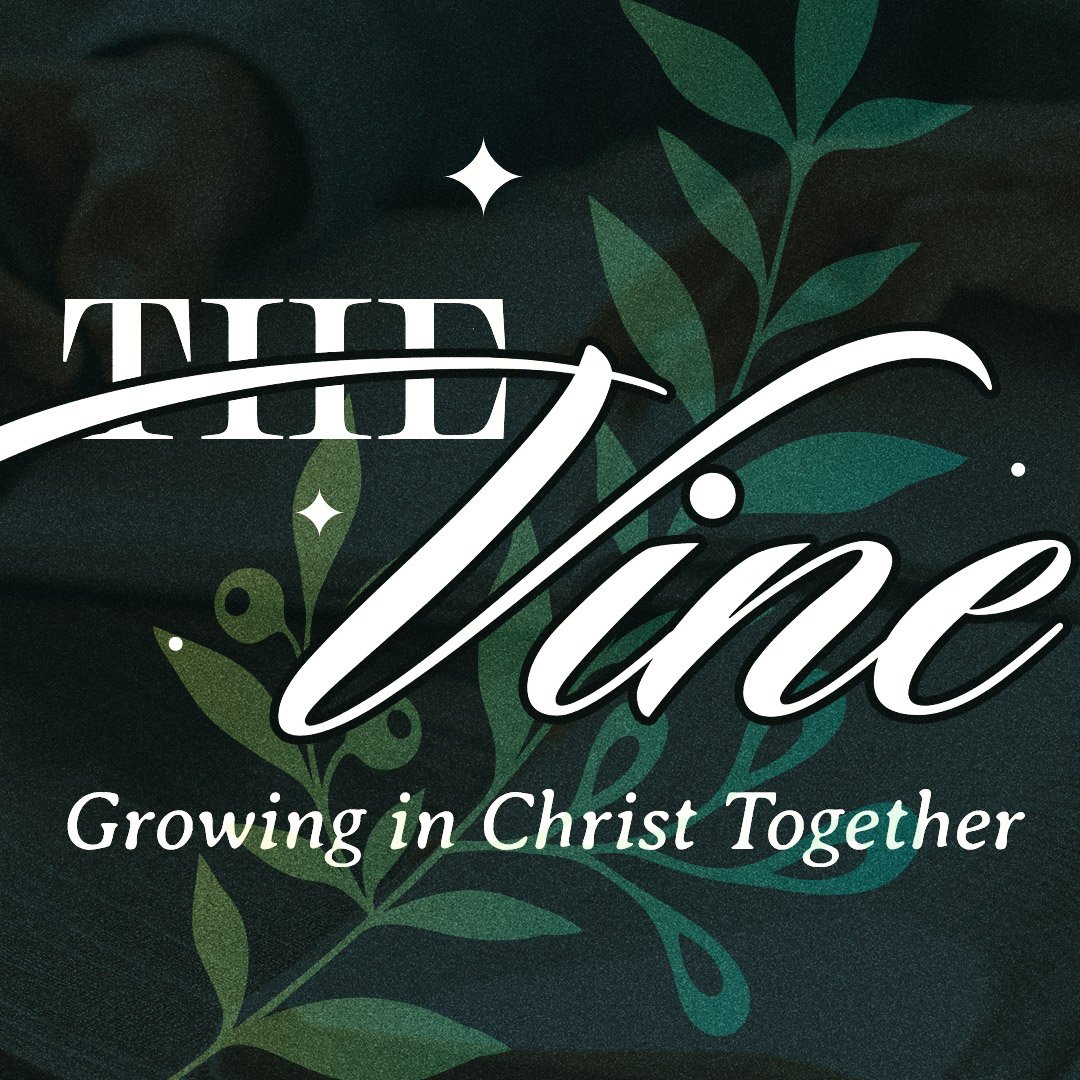The Vine: August 12, 2024
“Abide in me as I abide in you. Just as the branch cannot bear fruit by itself unless it abides in the vine, neither can you unless you abide in me. I am the Vine, you are the branches. Those who abide in me and I in them bear much fruit, because apart from me you can do nothing”
This is a weekly reflection on the previous week’s sermon text. Each week there will be a devotional related to the scripture for the week, along with questions for reflection/discussion, as well as prayer. Feel free to make this a part of your individual spiritual growth throughout the week or utilize in small group settings (growth groups, Sunday school, etc.)
“ You were dead through the trespasses and sins in which you once lived, following the course of this world, following the ruler of the power of the air, the spirit that is now at work among those who are disobedient. All of us once lived among them in the passions of our flesh, following the desires of flesh and senses, and we were by nature children of wrath, like everyone else. But God, who is rich in mercy, out of the great love with which he loved us even when we were dead through our trespasses, made us alive together with Christ[a]—by grace you have been saved— and raised us up with him and seated us with him in the heavenly places in Christ Jesus, so that in the ages to come he might show the immeasurable riches of his grace in kindness towards us in Christ Jesus. For by grace you have been saved through faith, and this is not your own doing; it is the gift of God— not the result of works, so that no one may boast. For we are what he has made us, created in Christ Jesus for good works, which God prepared beforehand to be our way of life.”
In this passage Paul addressed the reality of sin in our lives and followed that up with a discussion about what God has done in response to our sin. He wrote, “You were dead in your trespasses and sins.” So, what in the world are trespasses? What is sin? The Greek word for trespasses is paraptoma which means a slip or a fall. Trespassing is taking the wrong road when we could take the right one. The Greek word for sin is hamartia, which means a miss. In that sense sin can be thought of as missing the target of life. Sin is inherent in all of us. It is part of being a human being.
What can be done about our helpless state? We cannot resolve this problem of sin in our lives, but God can and has done so in Christ. But God!! It’s only two words but they are perhaps the two most powerful words in this passage. After acknowledging the reality of sin, Paul wrote, “But God, who is rich in mercy, out of the great love which he has loved us even when we were dead through our trespasses, made us alive together with Christ…For by grace you have been saved through faith, and this is not your own doing; it is the gift of God.”
Fill in the blank in your own life and allow the words “But God” to be a part of the story. We might say things like, “My marriage is really struggling right now, but God…” Or “Things are difficult financially, but God…” Often in our lives we do not leave room for the “But God” part of the story. It seemed as though all had been lost when Jesus was crucified. All hope was lost. But God, who is rich in mercy, resurrected Jesus Christ and can give life to us as well. Forgiveness, grace, salvation, etc., all these things come as a gift from God. However, we must come to terms with the reality of sin in our own lives and the fact that we all need a Savior.
In his book “Life Together”, Dietrich Bonhoeffer wrote regarding the Church, “The pious fellowship permits no one to be a sinner. Everyone must conceal their sin from themselves and from the fellowship. We dare not be sinners. Many Christians are unthinkably horrified when a real sinner is suddenly discovered among the righteous. So, we remain alone with our sin, living in lies and hypocrisy.”
In Christ our sin has been forgiven and we experience new life. Paul made the statement that all of us were created in Christ Jesus for good works. This, in fact, is the purpose of our lives. The new life we experience in Christ results in a transformation leading to a proper motivation for good works. We do not do good works so that “God will accept and love us,” rather, we do good works in response to what God has already done on our behalf in Christ. It is a natural outflowing of grace.
PRAYER
Gracious, forgiving God, we thank you for doing something about our brokenness and sin. Through the mystery of your grace, you have freely offered yourself to us in Jesus Christ and have shown us the lengths you will go to save us. Forgive us when we pretend to have it all together and deny the reality of our need for a Savior. Thank you for today, and may we do good works in response to your love for us. Amen.
Questions for Reflection:
In what ways do you feel “dead in sin” today? Where do you find hope? Can you recall a time when God “made you alive again”?
Salvation is a gift from God. We do not earn acceptance, love, and salvation from God. How do you respond in gratitude for what God has done in your life? What truly motivates you to do good works?
How can we communicate the message of grace to those who feel unworthy of receiving God’s grace and love?
How do you acknowledge the reality of sin in your life, yet remain in a posture of being open to forgiveness and salvation and new life?
PREVIOUS WEEKS
To view all previous devotions go to https://fumc-rr.org/the-vine



